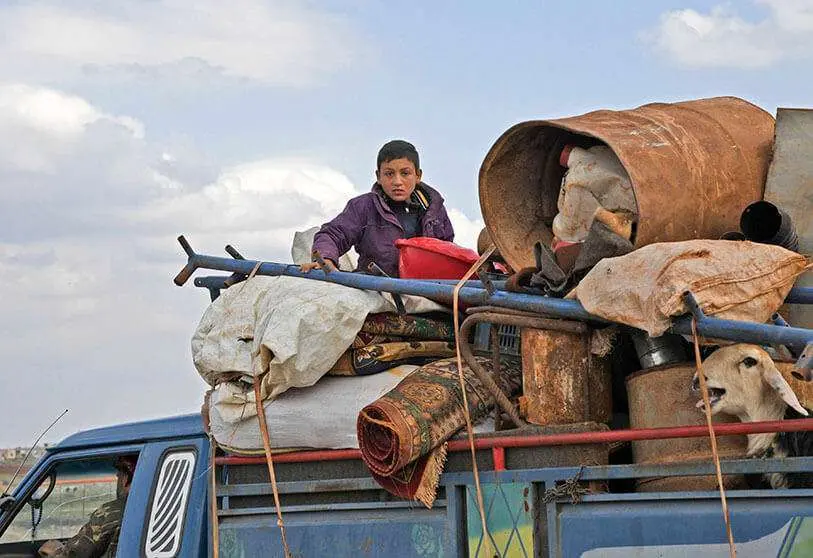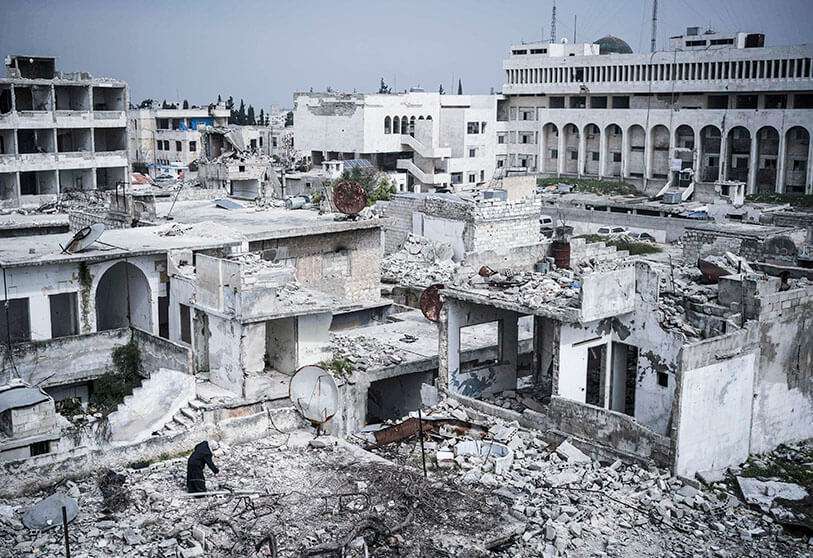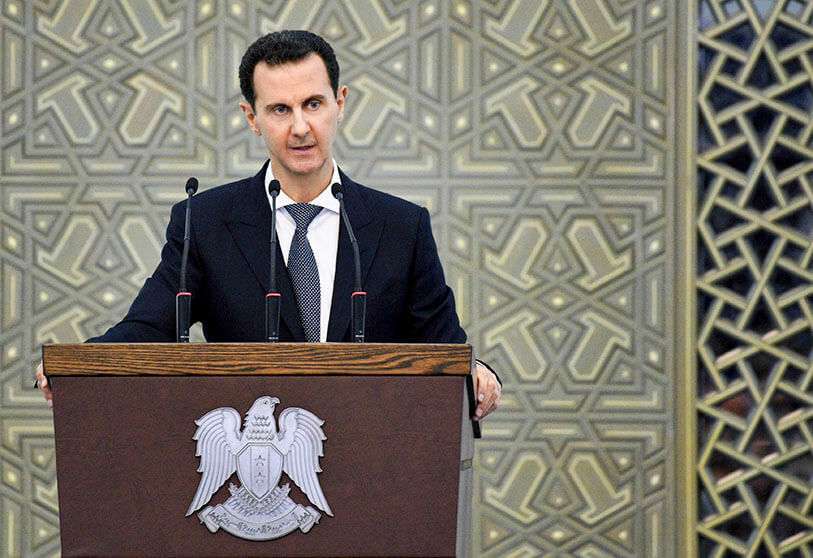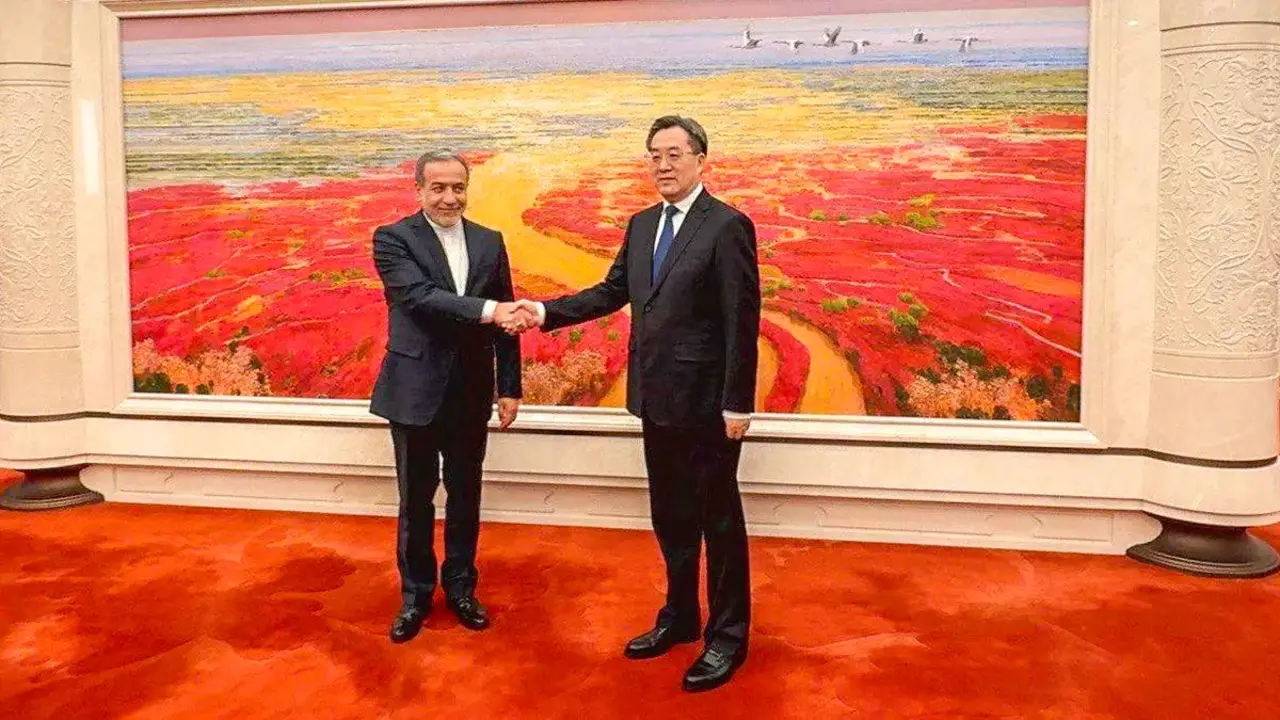Historic trial begins in Germany for crimes against humanity committed in Syria

The first trial against two suspected members of the intelligence services of Syrian President Bashar al-Assad, accused of committing crimes against humanity, including torture and sexual violence, begins on Thursday. However, this trial won't take place at the International Criminal Court in The Hague, it will be held in Koblenz, a German city on the banks of the River Rhine.
The principle of universal justice allows countries like Germany to prosecute war crimes, crimes against humanity or genocide committed beyond its borders. Thus, this premise has enabled German courts to accuse Anwar Raslan and Eyad al-Gharib, an alleged former intelligence officer and lower-ranking subordinate of Syria's General Intelligence Directorate, respectively, of alleged war crimes. The Syrian General Intelligence Directorate - known as mukhabarat - is one of the main intelligence agencies in the country.
Human Rights Watch believes that "universal jurisdiction cases are an increasingly important part of international efforts to hold those responsible for atrocities and their perpetrators accountable". In addition, such trials allow "fair treatment of victims who have nowhere else to turn, dissuade them from committing future crimes, and help ensure that countries don't become safe havens for human rights violators," they said. "With other avenues of justice blocked, criminal prosecutions in Europe offer hope to victims of crime in Syria who have nowhere else to turn," said Balkees Jarrah, the NGO's deputy director of Universal Justice. "The Koblenz trial shows that the courts - even thousands of kilometers away from the place where the atrocities were committed - can play a crucial role in the fight against impunity," he added.
This landmark trial is the result of an investigation based on a group of criminal complaints filed by the German human rights organization, the European Centre for Constitutional and Human Rights (ECCHR), together with lawyers, activists, torture survivors and their Syrian relatives. Both Anwar R. and Eyad A. were arrested in Germany in February 2019 and since then have been accused of being alleged members of the Syrian intelligence services. However, this investigation has indicated that both defendants may have deserted in 2012 and entered Germany as asylum-seekers in July 2014 and April 2018.
However, the crimes they committed may make their penalties totally different. On the one hand, Anwar R. is an alleged former senior Syrian government official, accused by the German prosecutor's office of supervising the torture of detainees between April 2011 and September 2012. Anwar R. was reportedly responsible for the investigations section of the al-Khatib detention center of the General Intelligence Directorate in Damascus, also known as "Rama 251", according to Human Right Watch. During this period, the prosecution notes, Anwar R. and his subordinates went so far as to torture more than 4,000 people using a variety of techniques, from beatings to electric shocks. In addition to these acts, Anwar R. is also charged with 58 charges of murder, as well as aggravated rape and sexual assault. All of these charges mean that this suspect faces a life sentence.
On the other hand, Eyad A., a lower-ranking official, but belonging to the same intelligence service, is also accused of "aiding and abetting" crimes against humanity, according to Human Right Watch. In this case, the prosecution alleges that Eyad A. was responsible for arresting a number of protesters in 2011 and handing them over to the al-Khatib detention center, where they were subsequently tried.

This historic trial is the first legal procedure against those accused of committing serious crimes against human rights in the conflict in Syria. The holding of this trial coincides in time with a historic pandemic that has forced much of Europe countries to take severe measures. Even so, Germany is already cautiously lifting the measures taken to curb the impact of this pandemic.
In this trial, "all the machinery will be exposed to the public," said Anwar al-Bunni, a Syrian human rights lawyer. One of the aims of this procedure is to reveal new information about the country's extensive security apparatus and its war crimes, under President Bashar al-Asad, according to various local media such as Al Arabiya. "We will see how the intelligence agents tortured the detainees and hid their bodies. It was a systematic policy applied by all branches of the security services, with the participation of the police," added Anwar al-Bunni. Other key evidence of such crimes will also be presented at this trial, evidence that has been recorded in photographs.
In recent years, crimes have been committed "so horribly that it would be a huge violation of the international legal system if they were not prosecuted," Mai El-Sadany, manager director and legal and judicial director of the Washington-based Tahrir Institute for Middle East Policy, told Al Monitor. "The argument for universal jurisdiction becomes much stronger in a context like Syria's, where there are really no other opportunities for justice," he said.
The laws of Germany, like those of other countries such as Norway, allow for the application of international justice in certain cases such as war crimes or genocide, among others. The influx of refugees into Germany in recent years, following the upsurge in fighting in Syria, has enabled several investigators to gather the evidence needed to conduct these types of trials.
For its part, the Syrian Government has repeatedly rejected allegations of torture and extrajudicial killings committed in a conflict in which hundreds of thousands of people have died and as many have been forced to flee their homes. So far, the lawyers of the suspects have been unwilling to make public any statements about their defense strategy. Furthermore, it should be noted that this trial could open the door to similar proceedings in other European countries such as Norway, where there are laws of jurisdiction with the same characteristics.

Amnesty International has thanked "the courage and sacrifices of the Syrian survivors, the families of the victims and dozens of other individuals and organizations who have pursued justice and truth relentlessly, often putting their own lives at risk in the process". "Syria is probably the most unfair country in the world," Hamoudi Shoaib, 37, a man who was tortured in a government prison in the northern city of Deir Al-Zor in 2011 and who fled to Germany six years ago, told Reuters. "So, for me, the simple fact that these people got a fair trial in a respectable court is like a revelation. I don't want revenge. I just want justice," he said.
"At a time when Syrians feel that the international community has failed them, this trial brings with it a renewed hope that a measure of justice is still possible. All survivors and the families of the victims have a right to truth, reparation and justice," said Lynn Maalouf, Amnesty International's Director of Research on the Middle East. Amnesty International has also called on states to follow the same steps as Germany and initiate similar proceedings.
Chaos, fear and destruction have conquered every corner of Syria over the past nine and a half years. This historic trial is a way to start doing justice and restoring hope to all those people who, even today, are still suffering the consequences of a devastating war. At present, the Syrian intelligence services continue to arrest and mistreat people who are under their control and whose political views don't match with those of the regime, according to Human Rights Watch.
Beyond the war crimes committed in Syria in recent years, more and more national courts have been dealing with cases involving crimes against humanity, which do not necessarily have to be in the context of a war conflict. "The era of impunity has reached its end," said Anwar al-Bunni, a Syrian lawyer and rights activist who works in collaboration with the European Centre for Constitutional and Human Rights (ECCHR) in Berlin and who has collected testimony from witnesses who helped lead to the charges. The first trial of two alleged members of the intelligence services of Syrian President Bashar al-Assad is only the first step towards ensuring that justice ceases to be a mirage for the hundreds and hundreds of Syrian civilians who were and are victims of one of the bloodiest wars of the current century.








